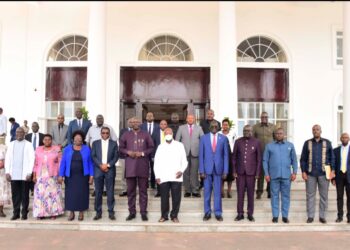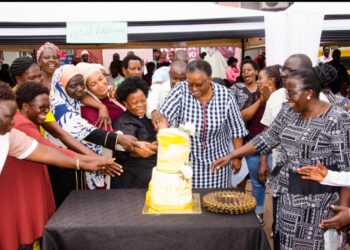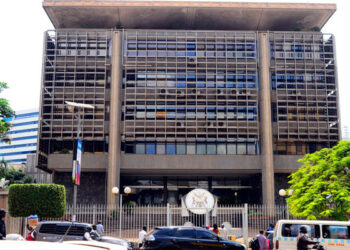An American tourist who was kidnapped in Uganda’s Queen Elizabeth National Park and held captive for nearly five days says she came to see the men who took her as both her captors and her protectors.
In her first interview about the terrifying ordeal, Kimberly Endicott opened up about how she found humanity in the four men who took her and her tour guide hostage and their days-long journey before a ransom payment secured their release.
The interview was conducted by American TV network CBS.
For days, Endicott and her guide JP Mirenge Remezo had been walking with their captors across the Ugandan border to the more unstable Democratic Republic of Congo.
“And then the sun is setting and we keep walking and it gets to complete, like, pitch darkness,” she recalled. “So at one point we stopped. And I look up in the sky and I see the most beautiful sky I’ve ever seen in my life.”
Even in captivity, Endicott remembered how “incredible” the sight was. She used it to connect with the people who took her.
“It’s nothing like I’ve ever seen before. And that was when I became very aware of humanizing myself to them … I said, ‘Look at the sky.’ I said, ‘We don’t have this at home.'”
She even pointed out the Milky Way to the men. She said it became her “mission” to be human with them so that not only would they see her humanity but it would help her see theirs, too.
“I remember laying down on the ground and I remember hearing JP say, ‘Oh my God,’ at my exhaustion. I don’t know how long I laid there,” Endicott said. “At one point I’m asked to get up. And I turn and look and they’ve made a tent for me out of tarps and a mosquito net, which, I remember that was the moment where I thought, ‘Why are they taking such good care of me?'”
Endicott said a “relationship” of sorts began with the young men in the camp.
“I just start talking to them like I’m talking to you,” Endicott told King. “But all the while I’m watching these young men drink water, not from the river, but from a hole in the ground. But they have bottled water for me.”
She ended up feeling compassion for the men, saying, “How could I not?”
“‘Cause that’s their life. It’s not really above living like an animal. That’s their life. If I survive this, I have a life to go back to. That’s their life,” Endicott said. “That does not condone what they did. Not even close.”
While a search effort was underway, the kidnappers began making calls to the tour company demanding a ransom and giving JP and Kimberly the phone at points in the negotiations.
“I was able to call my daughter once. They let me do that … My daughter’s besides herself,” she said. “Her mother’s been kidnapped. But I’m not beside myself. I’m saying, ‘Okay we can’t, like, we can’t do this now. Let’s get it together. But tell everybody what’s happening. Tell everyone what’s happening. Because I don’t know what’s being done.”
Following five days of negotiations, a ransom was finally paid but it has never been clear where the money came from or how much it was. Once they were free, it was reported across the world.
According to Endicott, it was a woman from the Ugandan Wildlife Authority who met her captors to hand over the money. After that, the same woman and a man with a motorcycle then took the two freed captives to safety.
“When we pulled into Ishasha Camp I realized just what my government did for me. And I was overcome with shame for thinking they didn’t do anything. And gratitude like I’ve never felt in my life,” she said.
Even in captivity, Endicott said she was able to find humanity in the men who took her and said they were also her “protectors.”
“They could’ve sold me to a different group. When I went out in the open they had guns that also protected me. It could’ve been so much worse than it was,” she said.
Endicott has been back in the states just over two weeks now, but those five days in early April still haunt her. She said she still relives the experience, but a little less every day.
“Certain things will trigger me. We went for a walk out at a nature area and it just triggered me like nobody’s business. The sound of our feet on the ground, pushing bushes out of my way – and so i’m getting in touch with that there’s gonna be that probably for a while,” she said.
Despite what she went through, Endicott believes Uganda is a safe place to visit, that she was the exception to the rule.
“That was the other thing. That feeling of what this is gonna do to that country that is run by their people and those are immensely friendly, accommodating people. And everyone in hospitality after you would have a conversation, the last thing they said to you was, ‘please tell all of your friends to come.'”
“So when all of this is said and done do you just look at this as a rag-tag team of people?” King asked, to which she replied, “100 percent.”
“Hopefully something beautiful is going to come out of this. That’s where I have to hold my hope.”
Do you have a story in your community or an opinion to share with us: Email us at editorial@watchdoguganda.com











